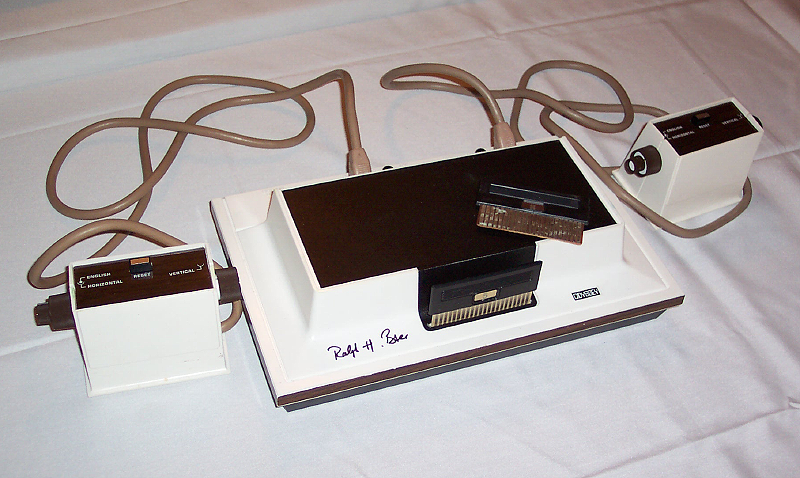The first platforms
In 1971 both formed Computer Recreations,
Inc., with the purpose of constructing a version operated with Spacewar coins!;
Pitts took over the programming and Tuck, a mechanical engineer, built the
cabin. After three and a half months of work they had finished the machine, but
decided to change the title of the program to Galaxy Game. The invention got
some resonance, but with a price of 10 cents per game, it was not profitable,
so they built a second version of the machine that allowed a single PDP-11 computer
to take charge of up to eight consoles simultaneously, thus amortizing the
expenses. The machine was installed in June 1972 at the Coffe House of
Tresidder Union, near Stanford University, and remained there with considerable
success until 1979.

Computer Space, the beginnings of Atari
In November 1971 - two months after Pitts and
Tuck had installed their first prototype - the first Computer Space was
installed in the Dutch Goose bar, near the campus of Stanford University and
was immediately successful among the students, Encouraging Nutting to
manufacture the device in series. However, when the first units of Computer
Space were put into circulation in bars and gambling halls, they did not
achieve the expected success. The control system and the purpose of the games
were very complicated for the non-university public, so its creators only
received $ 250 for their work Bushnell and Dabney ended their contract with
Nutting Associates and June 27, 1972, due to problems of copyright changed the
name of his company to Atari.
Magnavox Odyssey, the first video game console
in history
Magnavox Odyssey in a factory in Tennesse, and
in April 1972 the firm presented the new machine to the press and its
distributors. At the same time, the first accessory of the machine, a
good-looking plastic rifle, and ten additional games, all sold separately, were
presented. The flyers of the time already showed a video game console exactly
as we know it today



No hay comentarios:
Publicar un comentario